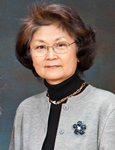A recording of this presentation is available.
Click the button to the right to access the session archive.
Access/download any related materials/handouts
from this session by clicking the button on the right.
24th Annual TCC | Online Conference | April 16-18, 2019
Sustainable Learning, Accessible Technologies, & Diverse Contexts
 Jed Green, Baker College, Flint, Michigan, USA
Jed Green, Baker College, Flint, Michigan, USAWith over ten years in the technology arena, Dr. Green holds several positions throughout the industry with has earned him a reputation through his insightful and entertaining presentation. Dr. Green is one of the most sought after training consultant with over six years as a Computer Application and Management Principles instructor. Additionally, he is a top instructor delivering ground-breaking SAT/ACT presentations on creativity, innovation, and preparation to emerging high school students.
Dr. Green’s educational experiences include a Ph.D. from Baker College in Business Administration and two master’s degree from Texas Southern University in Business Administration and Information Systems.
In his spare time, Dr. Green volunteers at his local church as the IT/Network Administrator.
A recording of this presentation is available.
Click the button to the right to access the session archive.
Access/download any related materials/handouts
from this session by clicking the button on the right.
Critical digital pedagogy is a developing field influenced by the work of bell hooks and others in critical and engaged pedagogy, and which explores these topics in the context of digital learning environments. Critical digital pedagogy is concerned with open learning developed in community and collaboration; the inclusion and participation of diverse, international voices; the truths and perspectives that emerge from a diversity of voices; and the applicability of this information beyond the walls of traditional higher education (Stommel, 2014). Relationship education focuses on increasing knowledge and building skills such as communication and conflict resolution that are important for individuals, couples, and families to establish and maintain healthy relationships. While more culturally appropriate education materials are now available in the field of relationship education, there are few resources focused on the unique experiences and needs of intercultural and interracial couples.
 Kristina Ordanza, California State University, Fullerton, Fullerton, California, USA
Kristina Ordanza, California State University, Fullerton, Fullerton, California, USA
A recording of this presentation is available.
Click the button to the right to access the session archive.
Access/download any related materials/handouts
from this session by clicking the button on the right.
Blackboard Collaborate Ultra is now browser-based, which ensures ease in entering a session with the synchronous virtual classroom tool. It also has features such as text and voice chat, PowerPoint slideshow delivery, and desktop sharing.It was the first-time for most students using Blackboard Collaborate as a resource for tutoring which was difficult for them to adopt since they are used to in-person tutoring. In addition to it, it was too much for one tutor, who is new in online tutoring, to deal with 7 courses with 20 sections this semester. As the semester goes on, the tutor got busier and his schedules got harder to coordinate.
Overall, finding success in this environment of online tutoring can sometimes be challenges. This is because of lack of physical contact to see how students react to what they are tutored on. This makes it difficult for the tutor to gauge if students understood what they thought.
 Kwi Park-Kim, Bronx Community College/The City University of New York, Bronx, New York, USA
Kwi Park-Kim, Bronx Community College/The City University of New York, Bronx, New York, USA
A recording of this presentation is available.
Click the button to the right to access the session archive.
Access/download any related materials/handouts
from this session by clicking the button on the right.
InfoTCC Hawaii, LearningTimes, & the Learning Design and Technology (LTEC) Department, College of Education, UH-Manoa, collaborate to produce this event. Volunteer faculty and staff worldwide provide additional support. TCCHawaii.org, a Hawaii nonprofit corporation, conducts events for educators and graduate students worldwide relating to current and future practices and research in learning technologies and design. |
Login[login-with-ajax] |